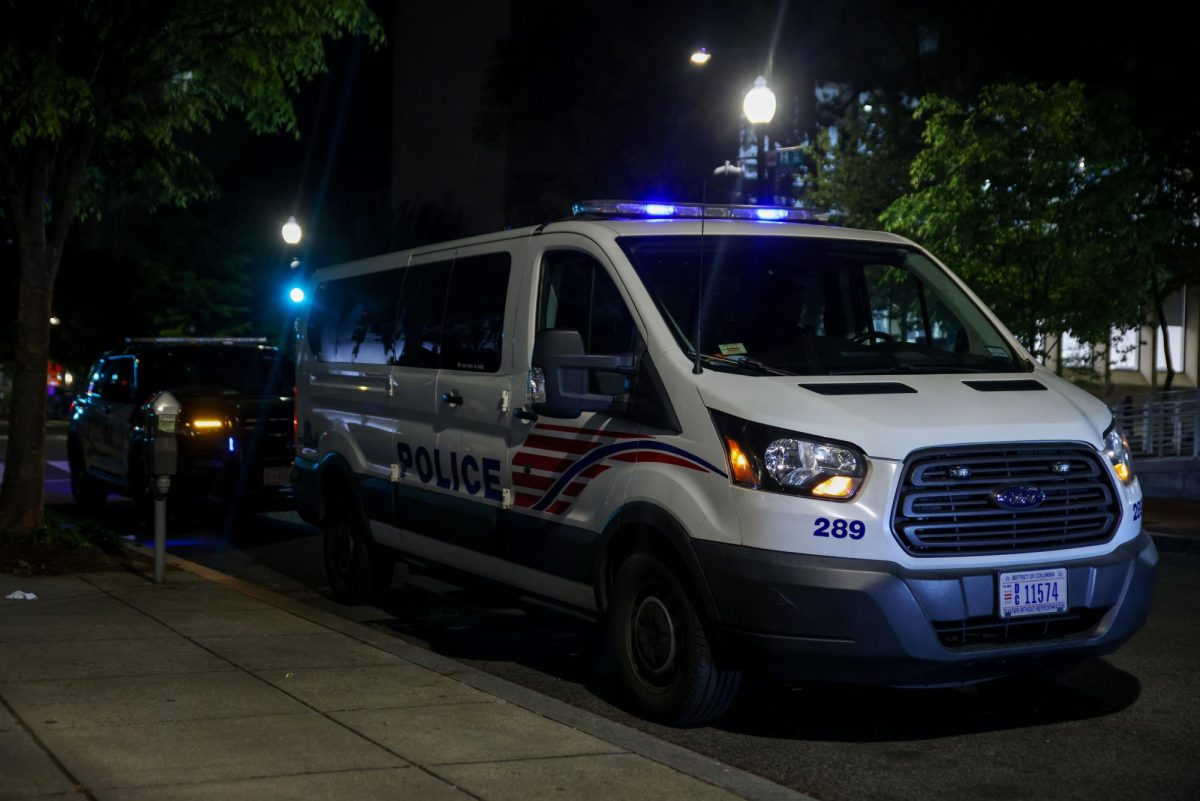Sigma Alpha Epsilon’s return to its spot on GW’s closest offering of a “Greek row” sparks an age-old debate on city campuses about how important houses are to fraternity life.
Sigma Alpha Epsilon President Andrew Hopkins said a fraternity house provides an important meeting and gathering place for members. The fraternity returns to a renovated 2034 G Street house after spending a year without it while it was condemned.
“Everything is easier, we used to meet in Columbia Plaza’s social room,” he said. “We can have privacy in our own house, it’s easier for our rituals and secrets.”
Sigma Nu sold its house at 2028 G St. to the University in February. Fraternity President Will McElwaine said the offer was too big to refuse, considering the house’s poor physical condition and location across from the University Police Department, according to a Feb. 5 Hatchet article.
McElwaine said Sigma Nu is managing without his house, and fraternity meetings are held in his apartment.
“As far as social events, D.C. has lots of bars,” he said. “We’ve found we like it better that way. That way we don’t have to clean up.”
Five University-recognized fraternities and one unrecognized fraternity, Sigma Alpha Epsilon, occupy houses. Lambda Chi Alpha’s house is owned by Sigma Chi, which lost recognition in 2000 after a hazing incident. Six recognized fraternities, or members of the Universities Interfraternity Council, are without houses.
IFC President Jared David, a member of Theta Delta Chi fraternity, which does not have a house, said houses are not necessary for social events.
“As an urban campus, for the most part social activities take place throughout the city as opposed to on campus,” David said.
David said fraternities without housing can “cope by getting apartments together or getting blocks of residence hall rooms together. If you get three rooms together, you’ve got 12 guys,” he said.
Sophomore Mike Leibsohn, a member of Lambda Chi Alpha who lives in their house, said houses help attract new members.
“The house is really a selling point during rush,” he said. “It’s a nice central location, brothers can stop by, kick back, watch TV or crash if they need to. It’s part of the Greek experience, having a house.”
Dan Anthony, president of Lambda Chi Alpha, said having a house brings a social element that is hard to replicate without one.
“We have weekly events here; the guys just hang out together,” he said. “There’s only 14 guys (living in the house) out of 44, but everyone comes here anyway.”
Senior Gavin Daniels, a member of Delta Tau Delta and resident of its house on G Street, said the house has “provided for an unforgettable college experience.”
“The best thing (about a house) is that 20 of your best friends live with you,” he said.
All recognized fraternities, with or without a house, fall under the University’s Social Responsibility Manual. This document outlines alcohol, space reservation and other regulations for Greek-letter organizations.
“There are no different (IFC) regulations between those with and those without houses,” David said.
The IFC provides optional safety inspections conducted by its vice president of risk management for all recognized fraternities with houses.
“We make sure they’re up to fire code, and if it’s a University-owned piece of property, the University takes care of things they need to,” David said. “If it’s private property, we can make recommendations for renovations.”
Fraternity presidents said a house allows them to achieve some independence from the University.
“With our own house, we don’t have to use any of the University’s facilities,” Daniels said.
“Another plus is that you don’t have to jump in a line for GW scheduling (for meeting space),” he said.
But, David said fraternity houses are “not required to have a full Greek experience. It’s a nice perk but it’s not necessary,” he said.
Some fraternity members cited the house as a symbol and source of pride.
“We love the house, what it stands for,” Daniels said. “The fraternity system around the country is being depleted slowly, and taking the house is one of the ways the system is declining.”
David said he disagrees with this assessment, calling a house “an extremely minimal source of pride.”
In the past, GW has expressed interest in creating a “Greek Village” on campus. In an April 12 Hatchet article, Mike Gargano, assistant vice president for Student and Academic Support Services, said putting the village at the corner of 23rd and G streets across from the Health and Wellness Center was part of his vision for a “model Greek community.”
Interim Director of the Office of Greek Affairs Ernie Kimlin said the village could include either housing or meeting spaces, but added that no one had discussed the issue for some time. Fraternity members also report not hearing about the proposal recently.
Fraternity members are split on the idea of GW-owned fraternity housing.
“I think the University should be in the business of providing fraternities with housing,” McElwaine said. “If the University plans to build those townhouses (in the Greek Village), that would be awesome. Or I think they should open up a dorm like Fulbright and make it a Greek dorm.”
McElwaine also said fraternities without a large alumni base or a lot of money are hard-pressed to find housing in Foggy Bottom.
“Old and strong fraternities like us will have money to afford an off-campus house, but the new ones aren’t going to have millions of dollars to buy a house,” he said. “They might be stuck in university housing for a few decades.”
Hopkins also said the Greek-letter housing would “do a good deal to rejuvenate the Greek community.”
“But if the houses are run like dorms, and the fraternities don’t have liberties like they would in their houses, then I think it will just be a way to get fraternities kicked off campus,” he said. “Being constantly under GW supervision could be a way to ruin the Greek lifestyle.”
Leibsohn said he is also wary about GW-owned fraternity housing.
“I think it’s not a good idea,” he said. “The house is unique, it doesn’t seem to work in a dorm.”
GW does own Kappa Sigma’s house at 2206 F St., which the fraternity rents from the University. Kimlin said they do not receive any special benefits or disadvantages from being on University property, except that maintenance problems are handled through GW.
“If there are any dealings with house, a malfunction or anything that goes wrong, they direct their concerns to Office of Property Management and they take care of it,” Kimlin said.
GW purchased the Sigma Nu house last year and has placed bids on the Sigma Alpha Epsilon house and the Sigma Chi house now occupied by Lambda Chi Alpha.
Last week, Hopkins said Sigma Alpha Epsilon would consider an offer in the future, but said a sale would be unlikely.
“It (the house) is the cornerstone of the whole chapter, it brings in freshmen,” he said. “We’re not going to give it up unless there’s a big offer that will allow us to purchase other property in the area.”
According to a Feb. 5 Hatchet article, Delta Tau Delta President Bob Simon said any offers to purchase the fraternity’s house would be refused. Last week, Daniels said Delta Tau Delta “would never sell” its house at 2020 G St.
As the president of the most recent fraternity at GW to lose its house, McElwaine offered mixed emotions.
“With a house we could make cash pretty quick by leasing to boarders, but we can’t do that now,” he said. “And we lost six parking spaces. But I tell the new guys, `enjoy not having a house while it lasts; it’s going to be a lot of work when we do get one.'”







